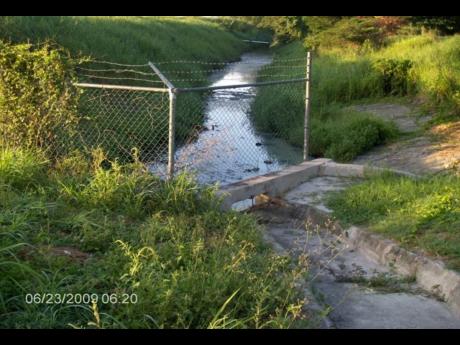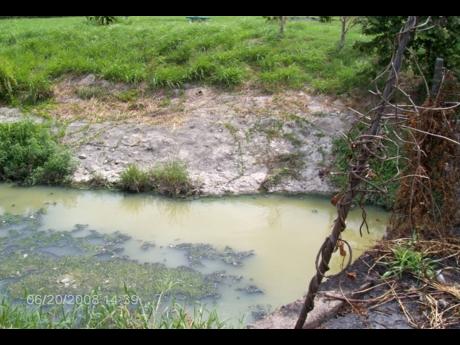A $6 million whiff of justice
Court sides with homeowner after raising stink over sewage nuisance
A homeowner who complained for nearly a decade about the nuisance caused by a sewage pumping station erected next to his property has been awarded nearly $6 million in damages for breaches of contract.
The award was made by the Supreme Court in a judgment handed down last month, ending a novel lawsuit filed by the homeowner, Winston Chin, against Can-Cara Development Limited and Can-Cara Environment Limited.
Stephanie Williams, of the law firm Henlin Gibson Henlin, who represented Chin, believes the judgment is a road map for the treatment of an issue that is prevalent nationally.
Justice Tara Carr, who presided over the lawsuit, acknowledged that there are “very few” legal precedents that involve private nuisance cases where the damage is related to a citizen’s quiet enjoyment of their property.
“The case provides some guidance for persons who may be in similar circumstances [as Chin] and need to seek the intervention of the court,” Williams said yesterday in response to questions posed by The Sunday Gleaner.
AIR POLLUTION AND ENVIRONMENTAL DAMAGE
Chin purchased his home in White Water Meadows, located in Spanish Town, St Catherine, in June 2000, almost four years after the Ministry of Housing entered into a joint venture agreement with the Can-Cara companies to develop lots in the area, court documents revealed.
“Some time in 2000 or 2001”, according to the documents, Can-Cara Development entered into a co-development agreement with Magil Construction Jamaica Limited to build a sewage pumping station in White Water Meadows.
However, the homeowner claimed in court documents and during a Sunday Gleaner interview that over the ensuing years, problems with the pumping station have caused significant nuisances such as air pollution and environmental damage.
“The predominant wind in Jamaica comes from the southeast and if you draw a line directly from the station or the mouth of the drain, which is less than 60 metres from my house, when the sewer goes in there, the scent comes right up,” said Chin.
“In April, I had some family over and I had to get some chlorine bleach and sprinkle it all over the place because when the wind is blowing the scent comes right into the house.”
One of the worst experiences, he recounted, was during the passage of Hurricane Ivan in 2004, which inundated several homes in the development.
“Because the sewer main is linked to the storm drain, when the storm came, both [sewage] and water came through the storm drain and some people had [sewage] backed up in their houses,” Chin told The Sunday Gleaner.
Two valuation reports in 2019 and 2023 revealed that the combination of the foul smell and raw sewage had reduced the market value of Chin’s home by $3 million and $5 million, respectively, court documents show.
NO DEFENCE FILED
Last month, the homeowner was awarded $5 million for breach of contract and $700,000 for the reduction of the amenity value.
Justice Carr affirmed in her ruling that the failure of the Can-Cara companies to perform the contract “resulted in the reduction in the value of the claimant’s [Chin] property”.
The Can-Cara companies did not file a defence to the claim, the court noted.
“I have considered the defendants’ conduct in this matter. Orders were made by [Justice Thomas] requiring them to prevent the discharge of sewage on or in the vicinity of the claimant’s property. This has, to date, not been done,” Carr noted.
“They have not made an appearance in this matter by way of a representative and the matter was undefended. I also consider the length of time that the claimant has suffered with the smell and sight of the sewage. The claim form was filed in 2012 and this is now 12 years later.”
The order by Justice Andrea Thomas was made during a pre-trial hearing in 2018.
She ordered, too, that the Can-Cara companies were required to prevent the discharge of sewage on or in the vicinity of Chin’s home and restore the air quality index in the area.
The companies were also ordered to provide a certificate from the Ministry of Health or the National Environment and Planning Agency as proof of their compliance with the orders.
The attorney for the homeowner insisted that “in addition to the monetary awards, we intend to pursue the enforcement of the judgment”.
NO CONSTITUTIONAL BREACH
Chin’s lawsuit also claimed damages against the housing ministry for breaches of his constitutional right to “enjoy a healthy and productive environment free from the threat of injury and abuse”, but this was dismissed.
His attorney argued that the ministry was obligated to ensure that the protection – granted by Section 13 of the Charter of Rights – was observed by developing policies and procedures to “ensure that the basic requirements were met”.
She argued, too, that the ministry was obligated to monitor and manage those who are in breach of “any such right so that the breach can be remedied”.
But in dismissing the constitutional claim, the court said while it accepted that the odour was unpleasant, the protection provided by the Charter of Rights requires “more than an unpleasant smell to establish a breach”.
“The claimant [Chin] has not provided any details of environmental abuse, degradation of the ecological heritage, threat of injury to himself or to his property in the form of disease,” Justice Carr said.
“There is no scientific evidence or otherwise to establish this fact. Additionally, he has not indicated that he has suffered from health challenges.”


